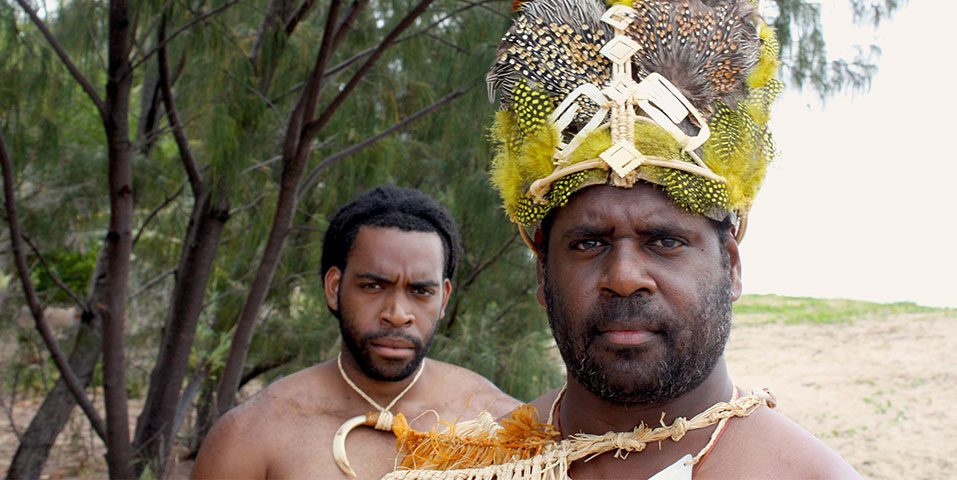Black Talk: Torres Strait Storytelling
Insights into the wonderful world of Torres Strait Islander storytelling with a focus on content and broadcast creativity.
Join us for our final Black Talk of the year, featuring a keynote from our new Elder in Residence, Sonia Smallacombe, and a conversation with two talented Torres Strait Islander storytellers, Aaron Fa’Aoso and Bernard Namok Jnr.
AFTRS is honoured to welcome Sonia Smallacombe as our second Elder in Residence. In her first address for AFTRS, Sonia will talk about her diverse life experiences as she has led and represented Indigenous people across Australia and internationally at the United Nations in New York. Her career has given voice to many matters that impact Aboriginal and Torres Strait Islander people.
Following the keynote, sit back and relax as AFTRS Head of Indigenous, Kyas Sherriff joins Aaron Fa’Aoso and Bernard Namok Jnr in conversation to gain their insights into the world of remote Indigenous broadcasting and ground breaking diverse television creations. What role does community radio play in the daily lives of the peoples from the Top End through to the Torres Straits? How does authenticity and representation influence and entertain the broader Australian audiences about Torres Strait Islander culture?
Networking drinks and nibbles will follow the presentation.
